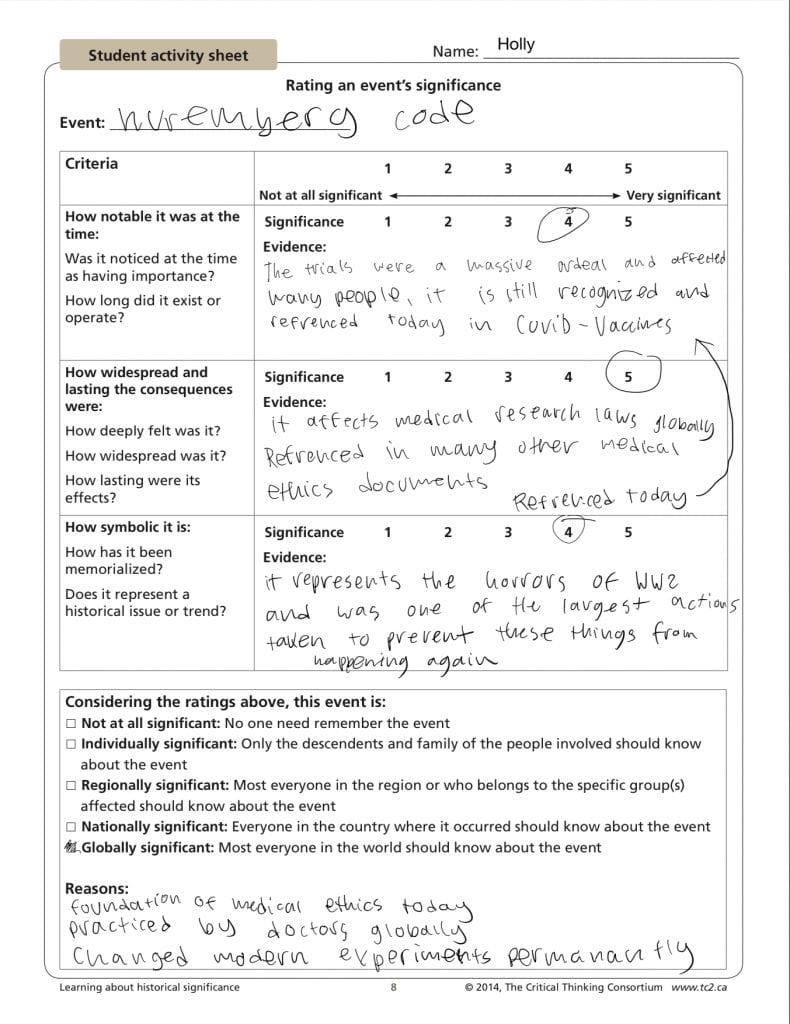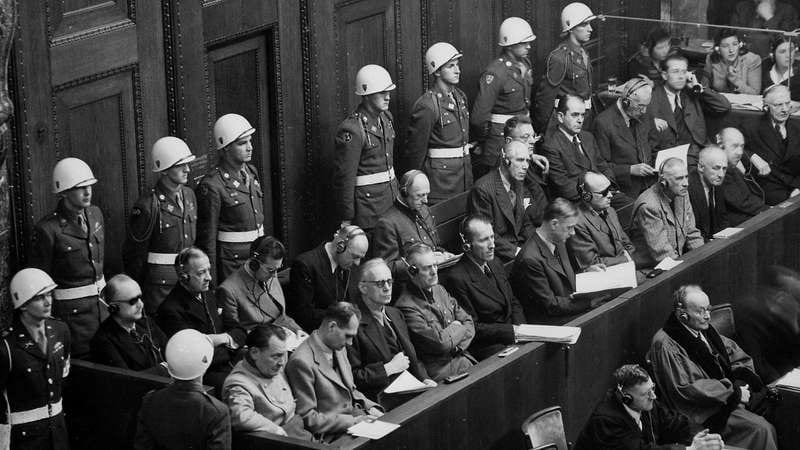Yo, welcome back to my blog. We’ve just recently started a new project which is going to be all about the Manhattan project. My teacher has a lofty goal of convincing us that the Manhattan project is an The most historically significant event of all time. However he’s yet to convince us of that, and today we’re making our own opinions about historical significance. There were four categories of events to decide from politics and war, philosophy and ethics, culture and society, and science and technology. The event you chose was supposed to relate back to one of these categories and my category was philosophy and ethics.
1. The voluntary consent of the human subject is absolutely essential. This means that the person involved should have legal capacity to give consent; should be so situated as to be able to exercise free power of choice, without the intervention of any element of force, fraud, deceit, duress, overreaching, or other ulterior form of constraint or coercion; and should have sufficient knowledge and comprehension of the elements of the subject matter involved as to enable him to make an understanding and enlightened decision.
This latter element requires that before the acceptance of an affirmative decision by the experimental subject there should be made known to him the nature, duration, and purpose of the experiment; the method and means by which it is to be conducted; all inconveniences and hazards reasonably to be expected; and the effects upon his health or person which may possibly come from his participation in the experiment. The duty and responsibility for ascertaining the quality of the consent rests upon each individual who initiates, directs or engages in the experiment. It is a personal duty and responsibility which may not be delegated to another with impunity.
2. The experiment should be such as to yield fruitful results for the good of society, unprocurable by other methods or means of study, and not random and unnecessary in nature.
3. The experiment should be so designed and based on the results of animal experimentation and a knowledge of the natural history of the disease or other problem under study that the anticipated results will justify the performance of the experiment.
4. The experiment should be so conducted as to avoid all unnecessary physical and mental suffering and injury.
5. No experiment should be conducted where there is an a priori reason to believe that death or disabling injury will occur; except, perhaps, in those experiments where the experimental physicians also serve as subjects.
6. The degree of risk to be taken should never exceed that determined by the humanitarian importance of the problem to be solved by the experiment.
7. Proper preparations should be made and adequate facilities provided to protect the experimental subject against even remote possibilities of injury, disability, or death.
8. The experiment should be conducted only by scientifically qualified persons. The highest degree of skill and care should be required through all stages of the experiment of those who conduct or engage in the experiment.
9. During the course of the experiment the human subject should be at liberty to bring the experiment to an end if he has reached the physical or mental state where continuation of the experiment seems to him to be impossible.
10. During the course of the experiment the scientist in charge must be prepared to terminate the experiment at any stage, if he has probable cause to believe, in the exercise of the good faith, superior skill, and careful judgment required of him, that a continuation of the experiment is likely to result in injury, disability, or death to the experimental subject.
For a little bit of clarification on historical significance, in class we discussed the past versus history. The past is everything that’s ever happened all the details, however history is very different. It’s chosen by people and written down. However historical significance is one step further, something historically significant creates change. It has consequences, it’s widespread, notable, and creates trends over time. These criteria seem like some pretty big boots to fill, but you have to remember that events are historically significant on different scales. Something to be historically significant globally, nationally, or even regionally. Given that it’s chosen by humans, history is subjective and is interpreted differently by different groups of people. However those criteria above were the ones that were given to us for choosing our historically significant event, and my event was the Nuremberg code.

My Significance Worksheet
Now I’m gonna take a wild guess and say you probably don’t know about the Nuremberg code. But I guarantee it affects you. The nuremberg code was created after World War II in 1947. It was written during the trials of Nazi doctors by American judges. It came around because of the awful experiments the Nazis did on prisoners in concentration camps. Prior to these trails there had been no code or in general any laws written to limit the power of medical experiments. This meant basically anything could be done in medical experiments to anyone. The Nuremberg code however established the lines of medical research. It was the first document to pioneer voluntary and informed consent. And has completely changed how research is performed, giving power to patients and taking complete control from the doctors.

The Nuremberg code was spurred from tragedy, and was created because of horrors that happened in the concentration camps. It was a big step forward in recognizing the importance of actually protecting and regulating human rights. And it affects everyone today who has ever used anything developed by modern doctors. In all the medical products used today, you know for a fact now that the people experimented on were under safe conditions, informed, and the proper research was done prior to the experiment and proven that the experiment was necessary. I personally have taken part in a medical experiment before and I knew that my rights were protected. And the Nuremberg code is still relevant. There are many accusations that the COVID-19 vaccine experiments violated the code (which was untrue), but it shows rules stated in the code still apply today. The Nuremberg code is called a keystone in modern medical ethics, and is the blueprint for many medical ethics codes today, and I believe it is an event of great historical significance.
As always thanks for reading,
Holly


Leave a Reply